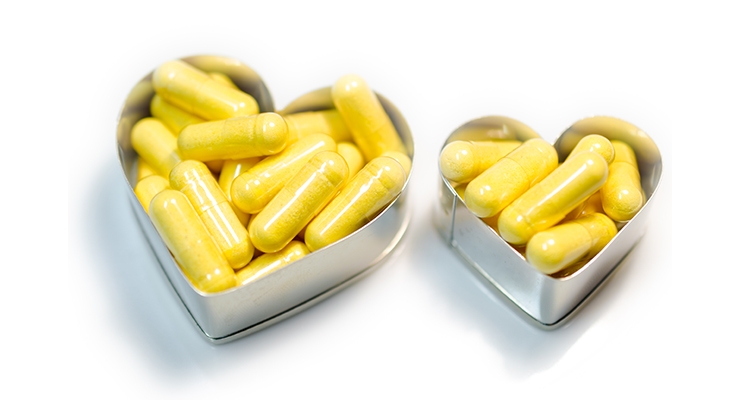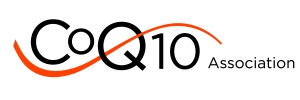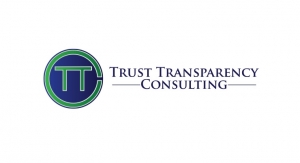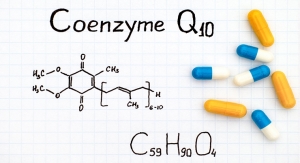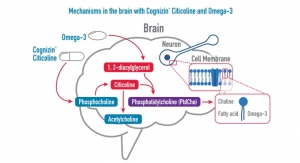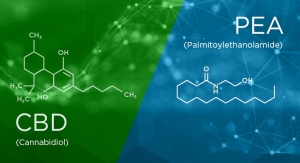07.25.19
CoQ10 one of the most consumed dietary supplements in the U.S., and the most recommended supplement by cardiologists. According to one estimate, the CoQ10 market generates $1 billion of annual retail sales globally. Scott Steinford, executive director of the CoQ10 Association, offered some insight and analysis of industry dynamics, including global trade and scientific research.
Nutraceuticals World (NW): How has the market for CoQ10 supplements been performing? What’s driving growth?
Scott Steinford: CoQ10 continues to grow and has eclipsed the 1,000MT mark globally, representing a 20% CAGR since 2000 when the global market was 37MTs. Growth in the United States continues to be served by the statin messaging, and heart health benefits continue to drive growth in developing areas such as China.
NW: How have the Trump Administration’s tariffs on goods from China impacted the CoQ10 market?
Steinford: CoQ10 (Ubiquinone) has been removed from each of the tariff lists so far. The reaction from buyers in Q4 2018 was to purchase inventory in front of any tariff action causing a slight strain on supply; sales softened in Q1 but are stabilizing now. The tariff action might still occur and will definitely impact CoQ10 if the proposed “500 List,” which encompasses all Chinese manufactured products, is implemented. Another intangible effect of the tariff discussion is the entire Chinese manufacturing machine is looking more aggressively to other markets to sell their products. The long term effect of these actions is unknown.
NW: How can CoQ10 supplements help people taking statins?
Steinford: The number one reason people stop taking statins is because of the uncomfortable side effects, specifically muscle pain which can be linked to CoQ10 depletion. The mechanism of action for statins is to block the production of CoQ10. Pfizer conducted a study in 2004 confirming all statins significantly inhibit COQ10 levels within 14 days of treatment onset. Numerous studies have confirmed this fact. Clinical studies have achieved mixed results surrounding the efficacy of CoQ10 supplementation concomitant with statin therapy but anecdotal reviews from statin patients repeatedly confirm the benefit.
NW: How has research and understanding of CoQ10 developed in recent years?
Steinford: Two important recent studies have confirmed the benefits of CoQ10. A 2016 study from researchers at Linköping University in Sweden found that combining CoQ10 with selenium, both of which are important for the management of cellular energy, can dramatically reduce cardiovascular mortality.
The small study revealed that this combination may be providing important lifesaving protection from cardiovascular disease. A 2018 follow up to this paper heralds an important finding for the future of CoQ10 usage. The Swedish researchers now suggest that the benefits of combining CoQ10 with selenium were still evident in subjects 12 years after supplementation ended. Independent researchers are lauding these findings as having implications for epigenetic regulation and suggests this has the potential to reset drivers for disease and health.
The other study to be discussed, the Q-Symbio study, was published in the Journal of American College of Cardiology: Heart Failure (2014 Dec;2(6):641-9. doi: 10.1016/j.jchf.2014.06.008. Epub 2014 Oct 1). The Q-Symbio study looked at 420 patients with moderate to severe heart failure (NYHA Class III or IV from nine different countries). The clinical trial is the largest placebo-controlled study of coenzyme Q10 for heart failure to date. Patients received either 100 mg capsules of ubiquinone or placebo three times daily in addition to standard CHF therapy. The study showed that patients in the CoQ10 group had a 43% decrease in cardiovascular death compared to the placebo group; 15% of the group receiving CoQ10 experienced major adverse cardiovascular events compared with 26% of the placebo group. This resulted in a statistically significant 43% relative reduction of major adverse cardiovascular events. The number of cardiovascular event related hospitalizations was 8% in the CoQ10 group versus 14% in the placebo group.
The conclusion of the Q-Symbio study was that long-term CoQ10 treatment of patients with chronic heart failure is safe, improves symptoms, and reduces major adverse cardiovascular events and hospitalizations. Another conclusion upon looking at the outcomes of the two studies side by side is the possibility that CoQ10 provided greater outcomes than Entresto. This conclusion is admittedly arguable, but the hypothesis can be suggested based upon the outcomes.
NW: Can you talk about efforts to educate the public about the benefits of CoQ10?
Steinford: The CoQ10 Association recently published an e-book for consumers and a deep dive industry report for industry stakeholders. The CoQ10 Association continues to promote and protect this important ingredient.
NW: What steps can or should industry take to ensure only high-quality products reach consumers?
Steinford: Fortunately, CoQ10 ingredient quality is continually monitored by the CoQ10 Association so no issues regarding ingredient quality have been found. Trust Transparency Center recently tested 100 Amazon sellers’ products and found almost half to be below label claim. Six products contained no CoQ10. Consumers should conduct due diligence on all supplement manufacturers they endorse with their purchase.
Nutraceuticals World (NW): How has the market for CoQ10 supplements been performing? What’s driving growth?
Scott Steinford: CoQ10 continues to grow and has eclipsed the 1,000MT mark globally, representing a 20% CAGR since 2000 when the global market was 37MTs. Growth in the United States continues to be served by the statin messaging, and heart health benefits continue to drive growth in developing areas such as China.
NW: How have the Trump Administration’s tariffs on goods from China impacted the CoQ10 market?
Steinford: CoQ10 (Ubiquinone) has been removed from each of the tariff lists so far. The reaction from buyers in Q4 2018 was to purchase inventory in front of any tariff action causing a slight strain on supply; sales softened in Q1 but are stabilizing now. The tariff action might still occur and will definitely impact CoQ10 if the proposed “500 List,” which encompasses all Chinese manufactured products, is implemented. Another intangible effect of the tariff discussion is the entire Chinese manufacturing machine is looking more aggressively to other markets to sell their products. The long term effect of these actions is unknown.
NW: How can CoQ10 supplements help people taking statins?
Steinford: The number one reason people stop taking statins is because of the uncomfortable side effects, specifically muscle pain which can be linked to CoQ10 depletion. The mechanism of action for statins is to block the production of CoQ10. Pfizer conducted a study in 2004 confirming all statins significantly inhibit COQ10 levels within 14 days of treatment onset. Numerous studies have confirmed this fact. Clinical studies have achieved mixed results surrounding the efficacy of CoQ10 supplementation concomitant with statin therapy but anecdotal reviews from statin patients repeatedly confirm the benefit.
NW: How has research and understanding of CoQ10 developed in recent years?
Steinford: Two important recent studies have confirmed the benefits of CoQ10. A 2016 study from researchers at Linköping University in Sweden found that combining CoQ10 with selenium, both of which are important for the management of cellular energy, can dramatically reduce cardiovascular mortality.
The small study revealed that this combination may be providing important lifesaving protection from cardiovascular disease. A 2018 follow up to this paper heralds an important finding for the future of CoQ10 usage. The Swedish researchers now suggest that the benefits of combining CoQ10 with selenium were still evident in subjects 12 years after supplementation ended. Independent researchers are lauding these findings as having implications for epigenetic regulation and suggests this has the potential to reset drivers for disease and health.
The other study to be discussed, the Q-Symbio study, was published in the Journal of American College of Cardiology: Heart Failure (2014 Dec;2(6):641-9. doi: 10.1016/j.jchf.2014.06.008. Epub 2014 Oct 1). The Q-Symbio study looked at 420 patients with moderate to severe heart failure (NYHA Class III or IV from nine different countries). The clinical trial is the largest placebo-controlled study of coenzyme Q10 for heart failure to date. Patients received either 100 mg capsules of ubiquinone or placebo three times daily in addition to standard CHF therapy. The study showed that patients in the CoQ10 group had a 43% decrease in cardiovascular death compared to the placebo group; 15% of the group receiving CoQ10 experienced major adverse cardiovascular events compared with 26% of the placebo group. This resulted in a statistically significant 43% relative reduction of major adverse cardiovascular events. The number of cardiovascular event related hospitalizations was 8% in the CoQ10 group versus 14% in the placebo group.
The conclusion of the Q-Symbio study was that long-term CoQ10 treatment of patients with chronic heart failure is safe, improves symptoms, and reduces major adverse cardiovascular events and hospitalizations. Another conclusion upon looking at the outcomes of the two studies side by side is the possibility that CoQ10 provided greater outcomes than Entresto. This conclusion is admittedly arguable, but the hypothesis can be suggested based upon the outcomes.
NW: Can you talk about efforts to educate the public about the benefits of CoQ10?
Steinford: The CoQ10 Association recently published an e-book for consumers and a deep dive industry report for industry stakeholders. The CoQ10 Association continues to promote and protect this important ingredient.
NW: What steps can or should industry take to ensure only high-quality products reach consumers?
Steinford: Fortunately, CoQ10 ingredient quality is continually monitored by the CoQ10 Association so no issues regarding ingredient quality have been found. Trust Transparency Center recently tested 100 Amazon sellers’ products and found almost half to be below label claim. Six products contained no CoQ10. Consumers should conduct due diligence on all supplement manufacturers they endorse with their purchase.

